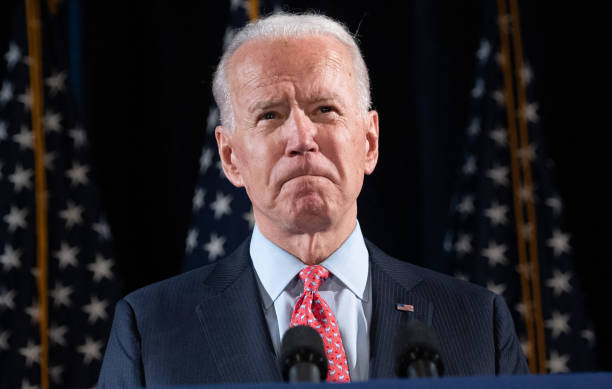(ThyBlackMan.com) For years, historians have wondered what would have happened had Sen. Robert F. Kennedy not been assassinated. Kennedy, at the time of his death, was able to forge an unlikely political alliance between working-class whites and Blacks. As historian Jeff Shesol wrote, “RFK recognized—and shared, by the time of Martin Luther King’s death—Black rage, resentment, and desperation.” By understanding and becoming sympathetic to the movement of Black power and cultural pride, Kennedy’s presidential campaign centered on using government to empower Black Americans in the quest for social justice. In the wake of King’s assassination, the late Rep. John Lewis stated, “I felt I had lost a friend, a big brother, a colleague. Somehow, I said to myself, well, we still have Bobby Kennedy.”

As a presidential candidate, Kennedy had the moral conviction and charisma to maintain his deep commitment to civil rights while attracting many working-class white voters, some of whom had voted for segregationist George Wallace in previous elections. He could cut across race and class lines with a patriotic populism built on respect, compassion, and humanity. He understood the plight of the poor and disadvantaged. As a senator, Kennedy worked on poverty issues in New York. He toured through sections of Harlem to call attention to the ineffectiveness of welfare programs at the time and worked to spur the redevelopment of the impoverished Bedford-Stuyvesant neighborhood in Brooklyn. He visited poverty-stricken Native American reservations and toured poor areas of Chicago, Los Angeles, and other cities. He vowed to improve life in what activist Michael Harrington called “the other America”—where Americans live with inadequate housing, poor schools, and no hope. Traveling abroad, the senator saw poverty and hunger first-hand in Southeast Asia and elsewhere.
In March 1967, Marion Wright, a civil rights attorney for the NAACP, testified before Congress about the starving farm workers and their families in the Mississippi Delta—a state where the all-white congressional delegation of conservative pro-segregation Democrats resisted federal funding for food and education programs. She urged lawmakers to see the crisis for themselves. A month later, Kennedy and other Senate subcommittee members traveled to Mississippi for a day of hearings on poverty programs in the region. The following morning, Kennedy and Sen. Robert Clark flew to Greenville, Mississippi, where they toured some of the most impoverished communities in the state. Throughout the trip, Kennedy often ordered the entourage to pull over for unscheduled stops so that he could talk to families at random.
During the Mississippi Delta visit, one longtime aide recalled how Kennedy seemed more shaken and disturbed by seeing so many children suffering in a way that far exceeded other poverty-stricken places throughout the nation and world. In an era filled with deep racial tensions, he sought to address the plight of people experiencing poverty by promoting racial and class unity rather than division. Kennedy once said, “We have to convince the Negroes and the poor whites that they have common interests.” Kennedy’s words were true then, and they remain true today. Many white working-class voters in Mississippi and elsewhere are entrenched in poverty just as much as their Black and brown counterparts. Yet, they will consistently follow their white supremacy views and political ideology when voting against their self-interests. Sadly, if something will ultimately help people of color, many white working-class voters will reject it even if their families and communities would benefit. Case in point: earlier this year, Gov. Tate Reeves of Mississippi refused to expand Medicaid access to the working poor. In one of the poorest states in the nation, hospitals across Mississippi have recently slashed their staff, discontinued medical services, or closed their doors permanently because of financial pressures within their organizations.
White working-class voters are easily exploited by conservative politicians who stand for the wealthy but show little interest in their “small government” rhetoric to help the poor. Gov. Reeves has repeatedly objected to the program’s expansion, sarcastically calling it “welfare” or labeling it “Obamacare.” Medical leaders have pleaded with Mississippi state leaders to expand the program. Economic experts say that Mississippi and nine other states that failed to pass any form of Medicaid expansion would experience an economic boon if state officials expanded the program. The question remains: why do voters continue to keep officials like Reeves in office? It has been 56 years since Kennedy visited the Greenville, Mississippi, region.
Dr. Brett Zepponi, a Delta Health physician, told Mississippi Today that he considers himself a fiscal conservative but plans to vote for Reeves’ Democratic opponent, Brandon Presley. Zepponi doesn’t think the Greenville hospital, which has no neonatal center, can last much longer without expanding Medicaid coverage. “For me, it doesn’t come down to a political thing,” Zepponi said. “But it’s more of a people thing. I think Republicans and Democrats both want their family to be taken care of and want their neighbors taken care of.” During the next election, more conservative voters like Dr. Zepponi need to put the welfare of people first, even if it means voting for the “hated Democrat.” Joe Biden is not Bobby Kennedy. While George Wallace supporters can put aside certain differences in supporting Kennedy, Trump voters must do the same with Joe Biden in 2024.
Written by David W. Marshall
Official website; https://davidwmarshallauthor.com/

















Leave a Reply